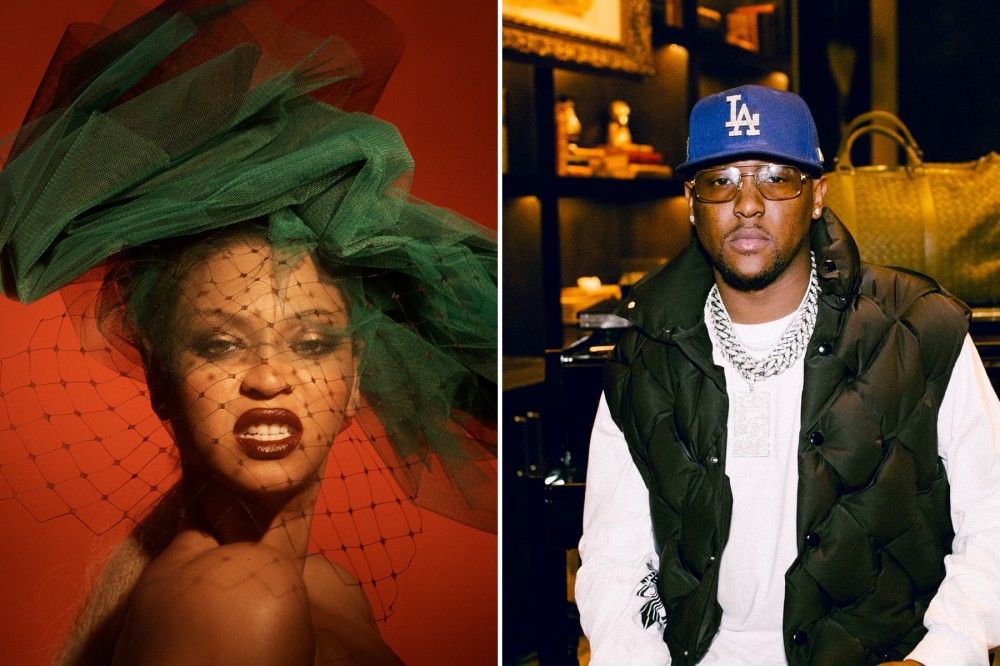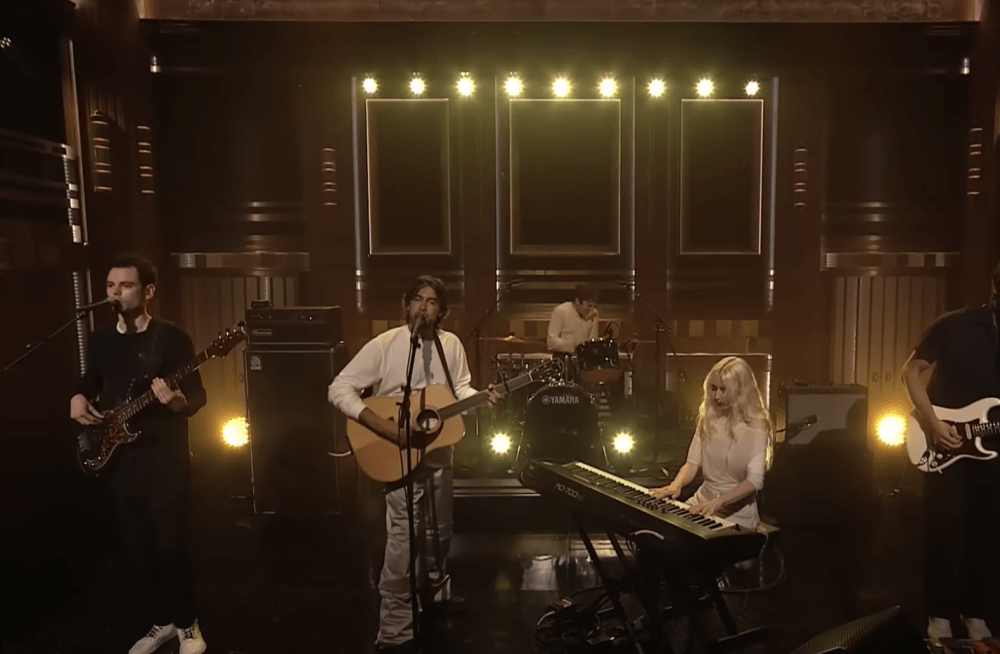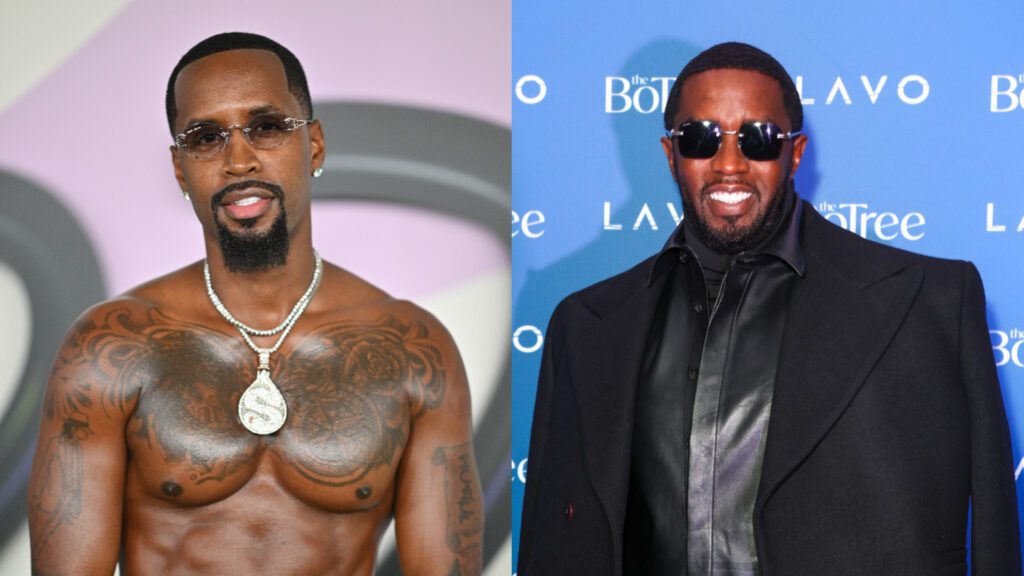
Exclusive: How Hit-Boy Produced Beyoncé’s New Song ‘Thique’ – Eight Years Ago
One day in 2014, “N—– in Paris” producer Hit-Boy started working with Beyoncé on two songs. One of them, released later that year, became the hit Nicki Minaj collaboration “Feeling Myself.”
The other was a track with a seductive house beat that would’ve been a major departure for Beyoncé at the time; she came up with a few ideas for it, then put it aside. As Hit-Boy reveals on the new episode of Rolling Stone Music Now, at some point in the last couple years, Beyoncé picked up the track again, and developed it into “Thique,” a standout track on her new album Renaissance. (The first 36 seconds of the song start with a separate beat added in the interim by Megan Thee Stallion collaborator Lil Ju.)
“I had to sit on that beat for eight years!” Hit-Boy says in the episode. “That’s the way the game goes sometimes. I’ve had a lot of ups and downs in the game and certain people will perceive like, ‘Oh, where’s Hit-Boy been? What’s Hit-Boy been doing?’ But then I’m sitting on stuff like ‘Thique’ that just hasn’t materialized yet. Y’all don’t even know how ahead I really am… I’ve been holding onto legendary stuff, and there’s plenty more.”
(To hear the whole episode, which also includes a deep dive on some of the controversies surrounding Renaissance with Jeff Ihaza and a look at the album’s themes and best tracks with Mankaprr Conteh, listen on Apple Podcasts or Spotify, or press play above.)
Hit-Boy, who executive-produced the Game’s upcoming new album, has worked with Lil Wayne, Rihanna, Kendrick Lamar, Drake, and many others; he’s been Nas’ close collaborator for the last three years, producing a trio of well-received comeback albums, beginning with 2020’s King’s Disease. He also produced Roddy Ricch and Nipsey Hussle’s Grammy-winning “Racks in the Middle” — the final song released by the latter rapper in his lifetime. On the new episode, he talks about his extensive work with Beyoncé and other career milestones. (Hit-Boy is also a rapper; his own new single, “Fireproof,” is due Aug. 19, with an EP to follow.)
Learning from “N—– in Paris”: “It kind of changed how I think now, how I move now. I feel like the quicker I make beats, the more people want them. If I take all day and I’m trying to be too drawn out with the melodies and doing too much, people don’t ever go for that. If I just mix it down and make something quick, they always bite. It’s the craziest thing. So what ‘N—– in Paris’ taught me was, simplicity wins.”
Making Beyoncé’s “Bow Down”: “I was basically trying to make a ‘N—– in Paris,’ female version. With that bounce, with that synth. Obviously you look at the lyrics, she’s talking crazy, talking rapper shit. So just to bring that energy out and go to her stadium shows and see the reaction is like, wow. The energy I was trying to convey really went over.”
Making Rihanna’s “Woo”: “She had a studio house in Malibu. She had a lot of dope writers and artists there. I was in a room literally with Travis Scott, the Weeknd, and Ty Dolla $ign. I made that beat from scratch in front of them and Travis started doing the ‘Woo’ melody, the Weeknd did his melody, and Ty Dolla $ign was doing some stuff. It was a dope moment.”
Producing Kendrick Lamar’s “Backseat Freestyle”: “I ain’t pictured nobody snapping like this on that beat. This dude is really who he think he is. He’s on some next level.”
On working with Nas: “In the hip-hop community, that’s helped me gain a new level of respect. And he really meets me fifty-fifty. Other other artists, you kind of hand off the files and then just hope you make it. With Nas, we’re really locked in, we’re in the studio, we’re sharing ideas, we’re playing music.” They’re currently working on another album together, King’s Disease 3. “We’re trying to keep that magic — actually trying to level up.”
Download and subscribe to our weekly podcast, Rolling Stone Music Now, hosted by Brian Hiatt, on Apple Podcasts or Spotify (or wherever you get your podcasts), and check out six years’ worth of episodes in the archive, including in-depth, career-spanning interviews with Bruce Springsteen, Halsey, Neil Young, Snoop Dogg, Brandi Carlile, Phoebe Bridgers, Rick Ross, Alicia Keys, the National, Ice Cube, Robert Plant, Dua Lipa, Questlove, Killer Mike, Julian Casablancas, Sheryl Crow, Johnny Marr, Scott Weiland, Liam Gallagher, Alice Cooper, Fleetwood Mac, Elvis Costello, John Legend, Donald Fagen, Phil Collins, Justin Townes Earle, Stephen Malkmus, Sebastian Bach, Tom Petty, Eddie Van Halen, Kelly Clarkson, Pete Townshend, Bob Seger, the Zombies, Gary Clark Jr., and many others — plus dozens of episodes featuring genre-spanning discussions, debates, and explainers with Rolling Stone’s critics and reporters.




